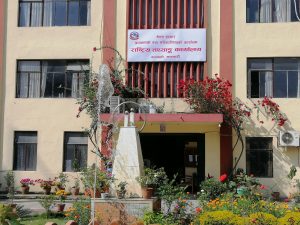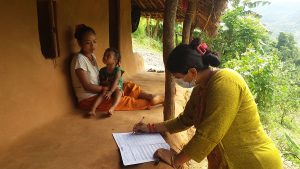
I have been in Cambridge, Massachusetts in the USA, for almost nine months as a Humphrey Fellow at MIT. It has been an experience of a lifetime, but I also love my homeland, Nepal, and want to share some of my recent experiences and thoughts after the outbreak of Covid-19.
The breaking news on March 26 was that the United States leads the world in confirmed coronavirus case. This fact shook me. While I am writing this, the US number rises to 188,172 infected cases and 3,899 deaths (Source: Coronavirus Resource Centre, John Hopkins University and Medicine).
Sadly, all these numbers will increase. The world is topsy-turvy since MIT prohibited international travel and non-essential domestic travel on March 06, 2020, and interstate travel restriction on March 19. The Massachusetts governor declared a state of emergency on March 10. I got the news while on a site visit to Boston Harbour. Since then, my mind has not been at ease, and nothing is as I thought it would be.
The coronavirus pandemic has changed my life from a SNAFU (situation normal all fouled up) a couple of weeks ago to a FUBAR (fouled up beyond all recognition) drama. Only one month ago, my plan was to finish classes at the end of April, and I was busy arranging much-anticipated travel to Toronto, Atlanta, Houston, and Arizona and looking forward to another non-local professional affiliation in Washington, DC. I was excited that my parents would come to Cambridge to attend my SPURS graduation on May 01. My parents had already travelled from Nepal on February 4 to be with relatives in Texas and were planning to come here to be with my daughter and me. But now, everything has been disrupted. Neither my parents nor I am allowed to meet or stay together.

All plans needed to be changed abruptly. My daughter’s public elementary school in Cambridge has closed. MIT has closed all in-person classes, meetings, and events; even the SPURS workroom for fellows is closed. All classes for us are now online. The institute has encouraged all of us who live in MIT graduate housing to leave if we can, but this is the US home for my daughter and me, so we continue living in an MIT graduate building which is now largely vacant since most American graduate students have left. Neither my parents nor I and my daughter can currently fly back to Nepal due to travel restrictions. So, all my plans are uncertain.
I am attempting to determine the best for my family and professional career while complying with all edicts and regulations. While I know public officials and MIT are attempting to find a delicate balance between prudence and actions that may cause panic, it is hard to live with so much uncertainty. My friend Richard MacIntosh, a local American, also cannot clarify but uses clichés and looks to the American character for answers.
I have had mixed experiences with the government and the university in this Covid-19 crisis. I realise that I am dealing with bureaucracies which are self-protective. I have found at a personal level that Americans are kind, considerate, and generous. People whom I know casually are calling daily to enquire about my well-being. Others are generously helping me with day-to-day activities. However, I am also bombarded with emails and find I am spending an inordinate amount of time reading, interpreting, and worrying about how to comply. I wish that it would all go away so I could concentrate on my fellowship work.
I have found myself a very resilient person in the past. Even now, when I get away from the overwhelming communications, I find my sense of reality and humour returning. But then the emails bring contradictory instructions, and I feel overwhelmed by the difficulty of making plans and figuring out what is best for me and my daughter day-by-day. What I see is that Americans are making every attempt to keep their lives normal. I see them walking, talking, cycling, wheeling baby-carriages, and walking their dogs each time I leave the MIT apartment building. At the same time, the local grocery store, Trader Joe’s in Cambridge, has been full of people who look anxious while maintaining the social distance.
In much of the US, people have started working from home, closing schools, switching to online classes, cancelling conferences, and ‘visiting’ family only electronically. The federal and local governments are working hard to protect people, but the disease is escalating here. It is distressing to write that the US has become the epicentre of the global pandemic, overtaking both China and Italy.

Political, financial, engineering and medical institutions have been disrupted globally. Experts are warning the most severe impact has yet to come. Scientists are researching for effective, safe medicines and vaccines to stop it. We must hope for the best and prepare for the worst outcomes. The course is not a straight line, but, rather, zig-zags as the US does not have strong central planning except during war times. It will be interesting, decades from now, to see how the politicians and historians treat the actions of each government around the world and argue about what system was the most effective. I am not cheering for any particular ideology, but want the human race to be the winner. May we learn to use the best that each country has to offer. The United States is finding its way forward in its usual bumbling way. This is okay since we are making progress, however.
Finally, I need to comment on the impact of this pandemic on the national security of the US. This crisis will cause each country, the US in particular, to review its stance on globalisation. That is, the interdependency of countries will be reassessed. National interests will be emphasised, once again. This has been highlighted by the US, depending on China for much of its health supplies and antibiotics. It now finds it needs to find alternatives. This dependency cannot continue as the two countries are both economic and political rivals. The supply chains will be realigned to give the US greater independence. This will affect the Pacific region as China will play a lesser role while other Asian Pacific countries will seize this opportunity to grow. This will have an immediate effect and will continue to evolve for decades. I trust that the business and political leaders of Nepal will see the future clearly and will act in the best interests of the Nepali people.























